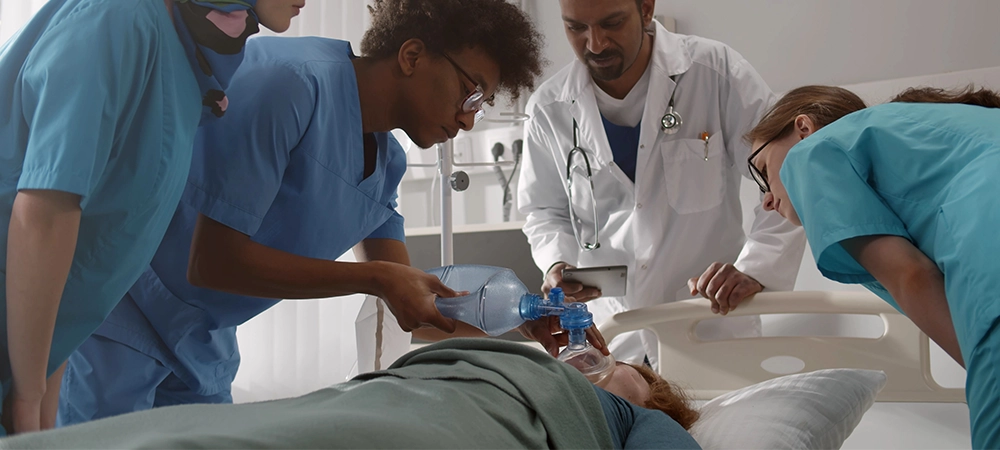Drug addiction recovery can be a maze, even at the best of times. If you’re considering the path to recovery from drug addiction, you’re likely juggling countless thoughts and questions. A common talking point for people with an addiction and their loved ones considering medical recovery is the relevance of clinical supervision in the process. Is clinical supervision really relevant during addiction recovery? Or is it just another excuse for drug recovery centers in Ontario to tack on the bills?
Picture clinical supervision for drug addiction recovery as a personalized compass guiding you through the challenging but transformative journey of rehabilitation. It involves a team of professionals who monitor, guide, and support you throughout your recovery process,
The reality is that clinical supervision equips you with the tools and strategies to navigate the complexities of addiction. This guide explores why this process is a fundamental cornerstone of your recovery journey.
Clinical Supervision Provides Tailored Guidance and Support
Clinical supervision offers a customized roadmap for your recovery journey. It’s not a one-size-fits-all approach. A reputable addiction recovery center in Toronto will tailor clinical supervision to your recovery needs and situation-specific challenges.
Through personalized sessions:
- You’ll receive guidance and support from experienced clinicians who understand the intricacies of addiction.
- They’ll help you explore triggers, address underlying issues, and develop coping mechanisms specific to your situation.
The danger lies in missing crucial strategies and support, potentially leading to relapse or prolonged struggles in sobriety.
Take the case of someone struggling with opioid addiction who, without proper clinical supervision, may not receive the specialized counselling and support needed to address the root causes of their addiction.
This lack of tailored guidance can result in an unsuccessful recovery attempt, potentially leading to further substance abuse or health risks.
Related Article: The Different Types of Addiction Treatment in Ottawa
Your Physical Health will Benefit from Clinical Supervision
Continuous health monitoring is a fundamental aspect of CS. This includes regular check-ups, screenings, and support to address any health concerns that may arise during recovery. It’s the best way to identify and address any budding health issues promptly.
Substance abuse can take a toll on your physical health. Clinical supervision ensures that your physical health is a priority during the recovery process.
During addiction detox, you’ll have access to a safe environment for detox, ensuring that the process is managed properly and with appropriate medical support. This structured approach minimizes health risks associated with withdrawal symptoms.
Addiction affects individuals differently, and having professionals who understand these nuances is essential for a successful recovery. They can address underlying health issues exacerbated by addiction, ensuring a comprehensive approach to your overall well-being.
Continuous Monitoring and Accountability
Clinical supervision involves regular check-ins and monitoring, ensuring you’re on track with your addiction recovery goals. This level of consistent accountability holds you responsible for your actions and progress.
Try not to think of clinical supervision as a juvenile policing attempt by your addiction care provider. Instead, it provides a safety net for drug addiction recovery — providing a safety net, ensuring you remain focused and committed to your sobriety journey.
Without continuous monitoring, the risk of slipping back into old habits or losing motivation significantly increases. This situation could perpetuate a cycle of addiction, hindering your recovery progress and potentially leading to demotivation or feelings of hopelessness.

Clinical Supervision is Key to Learning Coping Strategies for Addiction Recovery
Clinical supervision equips you with a toolkit of coping strategies to navigate the complexities of life after rehab. You’ll learn how to handle stress, triggers, and challenges without resorting to substances.
These skills are invaluable in preventing relapse and ensuring long-term sobriety. Without learning and practicing these strategies under supervision, the risk of succumbing to triggers or stressors might be considerably higher.
The following coping strategies provide a feel of why clinical supervision is important to any drug addiction recovery program:
- Stress management techniques
- Identifying and managing triggers
- Developing healthy lifestyle habits
- Building communication skills
- Establishing boundaries
- Resilience building exercises
- Problem-solving and decision-making skills
- Emotion regulation strategies
- Mindfulness and meditation practices
- Relapse prevention planning
Addressing Co-occurring Mental Health Issues
Clinical supervision also addresses co-occurring mental health issues. Addiction often intertwines with underlying mental health conditions, and these need specialized attention for successful recovery.
Without this integrated approach, you or your loved one may struggle to address the root causes of addiction, hindering their ability to maintain sobriety.
Consider a person with a dual diagnosis of substance abuse and depression. Without the oversight and targeted treatment that CS affords, their treatment may not adequately address the interplay between these issues.
This lack of an integrated, holistic approach to addiction treatment could lead to a higher risk of relapse. Alongside, it can worsen depressive symptoms, fostering a cycle of addiction.
Building a Support Network
Clinical supervision fosters connections within a support network — from peers who are also in addiction recovery and share common goals with addiction care professionals.
This network offers a safe space to share experiences, offer mutual support, and build lasting relationships.
The path to sobriety is best travelled in a good, honourable community. Choosing to undergo a tailored clinical supervision program can give you that. Without this supportive community, you may feel isolated or lack the encouragement needed to navigate the ups and downs of recovery.
Prevents Dangerous Triggers
Clinical supervision helps identify and address triggers that could lead to a relapse. It provides a safe environment to recognize and manage potential danger zones, safeguarding against drug or alcohol cravings.
Without this guidance, you may not recognize or know how to manage triggering situations, leading to a heightened risk of relapse.
Think of a patient reintegrating into daily life post-rehab without the guidance of clinical supervision. They might inadvertently find themselves in triggering situations, unaware of how to manage or avoid them. This lack of awareness could dangerously increase the risk of relapse.
Long-Term Sobriety and Addiction Recovery
Ultimately, clinical supervision significantly contributes to achieving the long-term goal of sobriety. The structured support, guidance, and tools acquired during supervised addiction recovery pave the way for sustainable sobriety.
Without this critical foundation, the risk of relapse and ongoing struggles with addiction could persist.
Clinical supervision involves education on addiction and its triggers. It includes teaching skills such as recognizing early warning signs of relapse, building resilience, and developing problem-solving skills. The structured education will empower you to navigate any challenges successfully.
In many cases, clinical supervision closes out with an aftercare program. The relapse prevention plan includes a schedule of regular check-ins and monitoring to ensure you stay on track. In addition, you’ll also have access to experienced supervisors. They can provide ongoing support and guidance, ensuring you’re following the plan and making adjustments where necessary.
Related Article: The Benefits of Holistic Addiction Treatment

Clinical Supervision offers Huge Benefits for Drug Addiction Recovery
Clinical supervision is not merely an additional cost in your recovery journey. It’s often the difference to unlocking a life without drug addiction. From tailored support to access to on-demand medical care, clinical supervision is important in any drug addiction recovery program.
As you weigh your options, always remember that investing in a program involving clinical supervision isn’t just about the present but ensuring a future where sobriety is not a dream but a reality. You’re worth the investment. Your journey toward recovery is valid, and the right support system can make all the difference.
It’s a decision we can help you come to terms with. Call 1-855-787-2424 to speak with an addiction recovery specialist at Addiction Rehab Toronto. We’ll discuss our approach to clinical supervision and how we tailor programs to individual requirements.
Your freedom from addiction is now.







